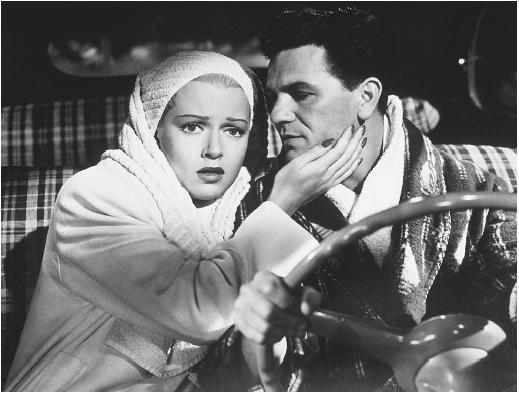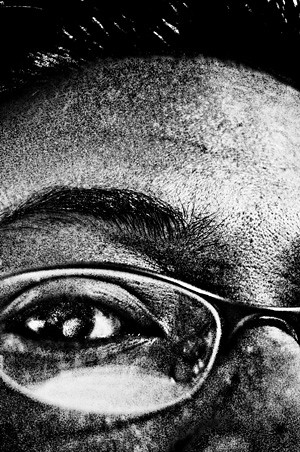
The Postman Always Rings Twice
Directed by: Tay Garnett
Screenplay by: Harry Ruskin and Niven Busch
Based on a novel by James M. Cain
Released 1946 by Metro-Goldwyn Mayer
Cast: John Garfield, Lana Turner, Hume Cronyn, Leon Ames, Cecil Kellaway
Tay Garnett’s potboiler film-noir The Postman Always Rings Twice (1946), is perhaps worthy to be lined up together with Wilder’s earlier noir masterpiece Double Indemnity (1944) as two of the greatest films that grasp the genre with masterful precision. And to notice that both of them were written by former journalist James M. Cain, who together with other writers such Raymond Chandler, Dashiell Hammett, Mickey Spillane, form the core of hardboiled crime fiction that would create an entirely new kind of literary genus.
Frank Chambers (Garfield) is a drifter with an “itchy feet”, walks into a lonely hamburger outpost in the middle of Pacific Coast Highway after a hitchhike. He is greeted by the owner of the place, Nick Smith (Kellaway), and brings him in. The camera, then pans into a corner of the screen to allow us to see the sign “Man Wanted” hanging on a tree branch (to think of the double meaning of it is a funny thing indeed).
A lipstick rolls across the room and into Chambers’ foot, and again, we are treated to a similar reaction as that of Chambers. Standing at the edge of a portico is Nick Smith’s wife, Cora (Turner). A heaving sigh at the perfectly-proportioned structure of a woman, at this time we are not aware of how cunning and dangerous she is going to be. Chambers will it discover later, but not before he will plunge headfirst into her scheming ways, and an eventual seduction that will spiral out of control.
“Threesome”
The Postman Always Rings Twice is a menage-a-trois. From the arrival of Frank Chambers to the entrance of Cora Smith, it reeks of utmost sexuality. We can also deduce of Nick Smith’s incapacity to perform his marital obligations to Cora. The film is a love story that traverses the road-often-traveled of noirs: a discontented wife against the backdrop of a tumultous marriage, and an accidental third-party to drag into the whole mess of a despicable crime just to liberate herself from an impregnable chain.
At first, there is the unwanted chemistry that exists between the two characters: Frank’s attempt at flirtations, and Cora’s disdain for the new guy. Perhaps, we can say that their love-hate relationship only materializes the propensities to perform a hideous deed later on. They fall in lust, they fall in love, they defy the norms of a society that during those times adhere to stringent morality. What Nick lacks, Frank excels at it. He possesses the uncanny ability to sweep a woman off her feet and coerce her to do what is unthinkable.
Cora, on the other hand, is more smarter than he is. However, she conceals it along with an emotional baggage, to which she is prepared to use at an opportune moment. She is the perennial femme fatale—a preying mantis who would gobble every man who strays into her territory—and similarly with Walter Neff of Double Indemnity, Frank Chambers falls into the culvert of her insidious character.
Nick Smith, is shamefully, the film’s scapegoat. The bastion of conventionality. The unassuming old man, though for some reason, he is clearly aware of what is transpiring between his wife and the stranger he picked up. Doing nothing about it, is probably what makes him high. He is a voyeur of some sort. His paroxyms arrive at seeing his wife and another man. I think what is missing in their arrangement is the blunt agreement of both parties concerned.
Crime and Punishment
When the crime is committed, there is nothing spectacular about it. They botch the initial attempt and we would still anticipate a rerun. The moment they succeeded in doing it, the suspense commences.
Hume Cronyn plays Arthur Keats, Cora’s sardonic lawyer, who is as equally cunning as she is. Although much of the second part of the film revolves around the aftermath of the couple’s devilish ways, it is interesting to notice Keats’ struggle for Cora’s attention. He is evidently hitting on her, but knows of Cora’s guilt that probably pursuing it would do more harm than good on him. His methods clearly outmaneuver his rival, DA Kyle Sackett (Ames), who is relentless on bringing the couple to justice for what they did.
Keats and Sackett embody the underbelly of an upright justice system, whose methodologies of handling criminal cases are as crooked as the criminal themselves. They manipulate each other, seeking for loopholes to bury the hatchet onto one’s head. Needless to say, one’s attempt is another one’s triumph and eventually let the perpetrators of the crime get away scot-free. The machinations of the courtroom scenes somehow brings a sort of introduction to the film’s second part—from where a new beginning gradually takes shape.
The overall flavor of the film lies not on the couple’s search for the perfect crime, but on the illicit relationship between Frank Chambers and Cora Smith. As opposite sides of the coin, they could never be together even if they think they are, only the fantasy of it remains the loosening bond that unites them both.


1 comment:
Post a Comment